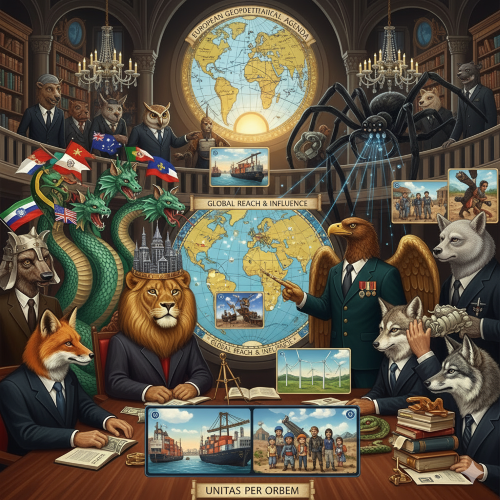What narratives do European leaders push about African youth migration, and how does that serve elite interests?

European leaders often push narratives about African youth migration that frame it as a crisis and a threat to European security and stability.
These narratives, which frequently rely on sensationalized portrayals of "waves" or "floods" of migrants, serve the interests of European elites by justifying restrictive policies, consolidating political power, and maintaining a transactional, rather than a genuinely developmental, relationship with Africa.
The "Threat" and "Crisis" Narratives
European leaders frequently use a narrative of crisis and threat to describe African youth migration. This narrative often:
-
Securitizes Migration: It portrays migration not as a complex social or economic phenomenon, but as a security issue. The focus shifts from human dignity and economic development to border control, law enforcement, and counter-smuggling operations.
-
Homogenizes African Migrants: The narrative often treats African migrants as a single, undifferentiated group driven by desperation, failing to acknowledge the diverse reasons for migration, including a search for education, better job opportunities, or simply the desire for a different life.
-
Exaggerates the Scale: Leaders use emotionally charged language like "invasion" or "avalanche" to create a sense of urgency and fear among the European public, even though the vast majority of African migrants move within Africa, and only a small fraction of the continent's population lives outside their home country.
How These Narratives Serve Elite Interests
The "threat" narrative is not a neutral description of reality; it's a strategic tool that serves several key interests of European elites.
-
Political Consolidation: By framing migration as an existential threat, leaders can rally domestic support and legitimize populist and anti-immigrant platforms. This allows them to consolidate power by appealing to voters' fears about national identity, culture, and security. The narrative creates a clear "us vs. them" dynamic that distracts from internal challenges like economic stagnation or social inequality.
-
Justification for Restrictive Policies: The narrative provides the pretext for implementing and funding restrictive migration policies. It justifies the "externalization" of borders, where Europe pays African nations to act as gatekeepers. This includes providing funding for border surveillance, detention centers, and military training, all of which are presented as necessary to protect Europe from a perceived threat. This approach is far cheaper and politically more palatable than addressing the complex root causes of migration, such as economic inequality and political instability.
-
Maintaining Neocolonial Power Dynamics: The narrative of African youth migration as an uncontrolled problem reinforces a patronizing and neocolonial view of the continent. It positions Europe as a "civilized" and orderly society that must contain the chaos and instability of a "backward" Africa. This framing justifies a transactional relationship where European states offer aid in exchange for compliance on migration control, rather than engaging in a true partnership that fosters African economic independence.
-
Diverting Attention from Europe's Role: Critically, the "threat" narrative deflects attention from Europe's own role in creating the conditions that drive migration. The focus on border security and a "migration crisis" obscures the historical and ongoing impacts of colonial legacies, unequal trade agreements, and exploitative resource extraction models that have hindered African development and limited opportunities for its youth.
-
The narrative effectively shifts blame onto African nations for not being able to retain their populations, rather than acknowledging that their economies are often structured to benefit European interests.
- Questions and Answers
- Opinion
- Motivational and Inspiring Story
- Technology
- Live and Let live
- Focus
- Geopolitics
- Military-Arms/Equipment
- Seguridad
- Economy
- Beasts of Nations
- Machine Tools-The “Mother Industry”
- Art
- Causes
- Crafts
- Dance
- Drinks
- Film/Movie
- Fitness
- Food
- Juegos
- Gardening
- Health
- Home
- Literature
- Music
- Networking
- Other
- Party
- Religion
- Shopping
- Sports
- Theater
- Health and Wellness
- News
- Culture

